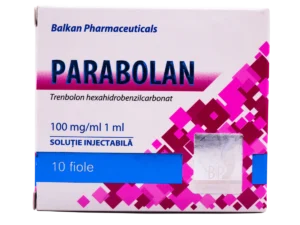
Introduction to Digestive Disorders in Athletes
Athletics, by virtue of its physical demands, necessitates a unique dietary approach to ensure optimal performance and recovery. However, the intense physical exertion and specific dietary practices common among athletes can sometimes lead to a variety of digestive disorders. This article aims to shed light on the common digestive disorders that athletes may encounter, the underlying factors contributing to these issues, and the potential impact on athletic performance.
Digestive disorders in athletes are not a rare phenomenon. They can range from mild discomfort to severe conditions that may affect an athlete’s performance or even prevent them from participating in their sport. These disorders can include symptoms such as nausea, vomiting, abdominal pain, diarrhea, and constipation. Such issues can be a result of various factors including dietary choices, the physiological impact of intense exercise, dehydration, or the use of certain supplements or medications.
While these disorders are common among athletes, they are often overlooked or misunderstood. Many athletes, coaches, and even medical professionals may not fully understand the relationship between athletic activity, diet, and digestive health. This lack of understanding can lead to mismanagement of symptoms and potentially exacerbate underlying conditions. Furthermore, the stigma associated with digestive disorders can often deter athletes from seeking help, leading to prolonged suffering and decreased performance.
Through this article, we aim to provide a comprehensive overview of digestive disorders in athletes, examining their causes, effects, and potential treatments. We believe that a better understanding of these issues can lead to improved management strategies, ultimately enhancing athletic performance and overall health. This knowledge is not only beneficial for athletes but also for coaches, trainers, and healthcare providers who play a vital role in an athlete’s performance and well-being.
Understanding Digestive Disorders in Athletes
As we delve deeper into the world of sports and physical performance, it becomes crucial to understand the intricacies of the human body, especially the digestive system, and how it can be affected by athletic activities. The following sections will provide a detailed exploration of common digestive disorders in athletes, their causes, and their impact on performance.
Common Digestive Disorders in Athletes
The spectrum of digestive disorders that athletes may experience is vast. Some of the most commonly reported issues include gastroesophageal reflux disease (GERD), gastritis, peptic ulcers, irritable bowel syndrome (IBS), and exercise-induced gastrointestinal syndrome. These conditions can manifest in a variety of symptoms such as heartburn, bloating, abdominal pain, diarrhea, or constipation.
Causes of Digestive Disorders in Athletes
Several factors can contribute to the development of digestive disorders in athletes. Intense physical activity can lead to increased pressure in the abdomen, reduced blood flow to the gut, and changes in gastrointestinal motility. Additionally, the consumption of certain foods and beverages before or during exercise, dehydration, and the use of certain supplements or medications can also contribute to digestive issues.
Impact on Athletic Performance
Digestive disorders can significantly impact an athlete’s performance. Symptoms such as abdominal pain, nausea, and diarrhea can lead to discomfort during exercise, reduced energy levels, and impaired concentration. In severe cases, these issues can prevent athletes from participating in their sport altogether.
Conclusions
Understanding the relationship between athletic activity and digestive health is crucial for optimizing performance and ensuring the well-being of athletes. Digestive disorders in athletes are common and can significantly impact performance, but they are often overlooked or misunderstood. By recognizing the signs and symptoms of these disorders, understanding their causes, and implementing appropriate management strategies, athletes, coaches, and healthcare providers can help to mitigate their impact on athletic performance.
Practical Recommendations
Addressing digestive disorders in athletes involves a multifaceted approach, from dietary modifications to lifestyle changes. Here are some practical recommendations that can help manage these conditions and mitigate their impact on athletic performance.
Dietary Modifications
Food choices play a crucial role in managing digestive disorders. Athletes should aim to consume a balanced diet rich in fruits, vegetables, lean proteins, and complex carbohydrates. Certain foods, such as those high in fat, caffeine, or spices, may exacerbate symptoms and should be consumed in moderation. Athletes should also consider the timing of meals, as eating too close to exercise can lead to discomfort.
Hydration
Proper hydration is essential, especially for athletes. Dehydration can exacerbate digestive issues, so athletes should ensure they are drinking enough water before, during, and after exercise. However, they should also be careful not to overhydrate, as this can lead to other issues such as hyponatremia.
Stress Management
Stress, both physical and emotional, can contribute to digestive disorders. Athletes should incorporate stress management techniques such as deep breathing, mindfulness, and yoga into their routine. Adequate rest and recovery are also essential to reduce physical stress on the body.
Medical Consultation
If athletes are experiencing persistent or severe digestive issues, it is important to seek medical consultation. A healthcare provider can help identify the underlying cause and develop a personalized treatment plan. This may include dietary modifications, medication, or in some cases, referral to a specialist.
By implementing these recommendations, athletes can better manage digestive disorders and maintain their performance. However, it’s crucial to remember that each individual is unique, and what works for one person may not work for another. Therefore, personalized advice from a healthcare provider is always the best course of action.






